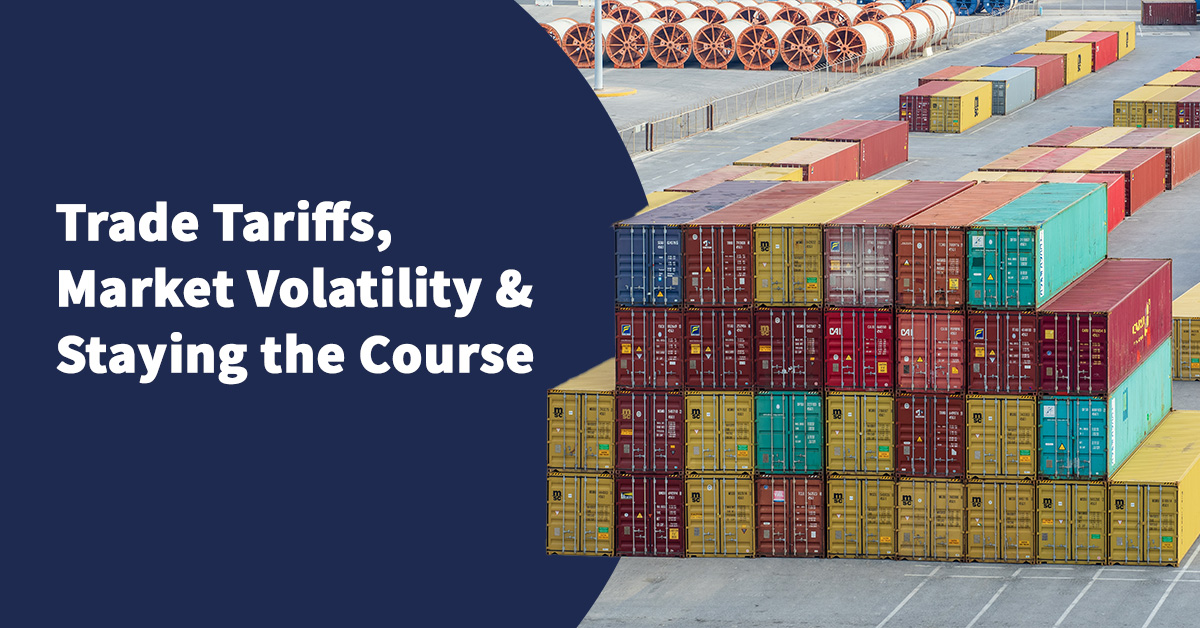With recent headlines dominated by global trade tensions, many investors are understandably uneasy about the resulting market volatility. As major economies engage in tariff disputes, markets have reacted with short-term turbulence—something that often grabs attention and stirs concern.
But volatility is not new, nor is it unusual. In fact, it’s part of what makes markets work.
Although the current environment may feel uncertain, history reminds us that markets have navigated countless challenges before—Brexit, COVID-19, inflation shocks, interest rate hikes, geopolitical unrest—and have consistently rewarded those who stayed invested with a long-term perspective.
Market Setbacks Are Normal
A look back through market history shows that significant intra-year declines are more common than many realise—and often followed by surprisingly strong year-end results. The table below shows the maximum intra-year drawdowns (DD) and end-of-year total returns (TR) for the S&P 500 from 1950 to 2025.
It reveals that after severe drawdowns, the market has often recovered the full decline and finished the year strongly positive.

- 1970: Market dropped -26% during the year… yet ended +3.6%
- 1975: Fell -14.1%, but rebounded to finish +37%
- 1987 (Black Monday): Down -33.5% mid-year, closed +5.8%
- 2009: In the midst of the Global Financial Crisis, declined -27.6%, but ended +26.5%
- 2020: COVID crash brought a -33.9% drawdown… and still finished +18.4%
These examples highlight a powerful truth: markets often recover from short-term pain to deliver long-term gain. Staying calm during periods of uncertainty has historically been the winning strategy.
Emotions vs. Evidence
No one can forecast exactly how today’s challenges will play out—or when. And yet, history shows us that uncertainty is always part of the investment journey. When one crisis ends, another will eventually follow. That’s simply the rhythm of global markets.
This is why reacting emotionally to headlines or short-term events can be so costly. It’s easy to believe that “this time is different,” but more often than not, it’s not. The stories change—but the pattern of long-term recovery remains remarkably consistent.
Opportunity in Disguise?
Periods of market volatility can also present opportunity. When fear takes over, quality assets often become undervalued. For investors with a long-term outlook, this can be a chance to invest at more attractive prices—what some might call “the market on sale.”
Staying focused through uncertainty, avoiding reactive decisions, and keeping sight of long-term goals are all hallmarks of successful investing.
“History doesn’t repeat itself, but it often rhymes.”
The key is not to avoid risk altogether, but to manage it wisely—and remember that volatility, while uncomfortable, is part of the price we pay for long-term returns.
Benefit from comprehensive, integrated, and objective advice.
Let’s discuss your specific needs and how I can help you meet your objectives
Let’s start the conversation
Online enquiry form
Related posts
 Published On: November 14, 2025|5 min read|
Published On: November 14, 2025|5 min read|The Hidden Risks of Going It Alone with Your Investments
Many people start trading their life savings after reading a few investment books or watching online tutorials. Here’s why that can be dangerous — and when it’s perfectly fine to trade with spare money instead.
Read more
 Published On: November 10, 2025|5.3 min read|
Published On: November 10, 2025|5.3 min read|How to Choose the Right Financial Adviser Before Moving Abroad (UK Residents Planning to Relocate)
If you’re planning to relocate abroad, find out how a UK-qualified financial adviser can help you prepare. Learn about tax residency, Double Taxation Agreements (DTAs), the Statutory Residence Test (SRT), offshore accounts, and how to structure assets before you leave.
Read more
 Published On: November 7, 2025|6 min read|
Published On: November 7, 2025|6 min read|Should You Sell or Keep Your UK Property When Moving Abroad?
For many people leaving the UK, one of the biggest decisions isn’t what to pack, it’s what to do with the family home or investment property. Should you sell before you leave, or keep it and rent it out while you live abroad?
Read more















